The legacy of culture in Kunming Taihe Palace contains Wu Sangui's personal belongings, such as the History Museum
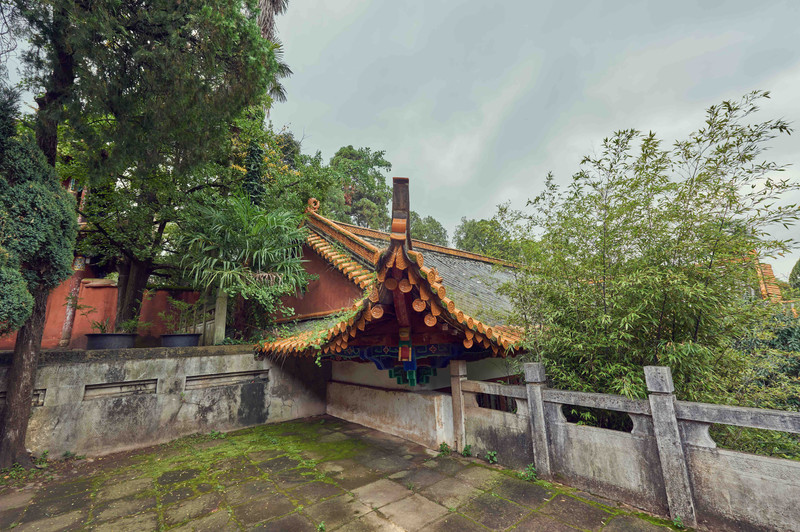
An ancient Taoist resort is still preserved on the outskirts of Kunming in Yunnan. It is engraved with historical events from the late Ming and early Qing Dynasties, and remains with cultural relics from that era. It is an ancient site that witnesses history!
This place is also the location of the largest preserved golden hall made of pure copper and is now a historical attraction in Kunming.
Everything here has a great relationship with "Wu Sangui", a political figure in the late Ming and early Qing Dynasties. It was he who rebuilt this golden hall here and sealed up his personal treasures.
"Wu Sangui" was a martial imperial examination officer at the end of the Ming Dynasty. Several generations of his ancestors were officials of the Ming Dynasty. He surrendered to the Qing Dynasty during the Chongzhen period, defeated Li Zicheng, guarded Yunnan, killed the last Ming Dynasty emperor,"Yongli Emperor", and was granted the title of "Prince Pingxi" by the Qing government.
The love story between Wu Sangui and Chen Yuanyuan has also been passed down among the people to this day. For this reason, he also built a golden hall weighing about 250 tons on "Mingfeng Mountain" on the outskirts of Kunming.
After building the golden hall dedicated to the statue of Zhenwu, he also forged a "Seven Star Sword" and hung it in the bronze hall. He also left a wood-handled broadsword that he had used in Taihe Palace!
Within two years after the construction of the Golden Hall, Wu Sangui mobilized tens of thousands of troops to fight against the Qing Dynasty.
Today, the Taihe Palace on "Mingfeng Mountain" in Kunming is still engraved with the history of that year, and some historical relics belonging to that era are sealed up!
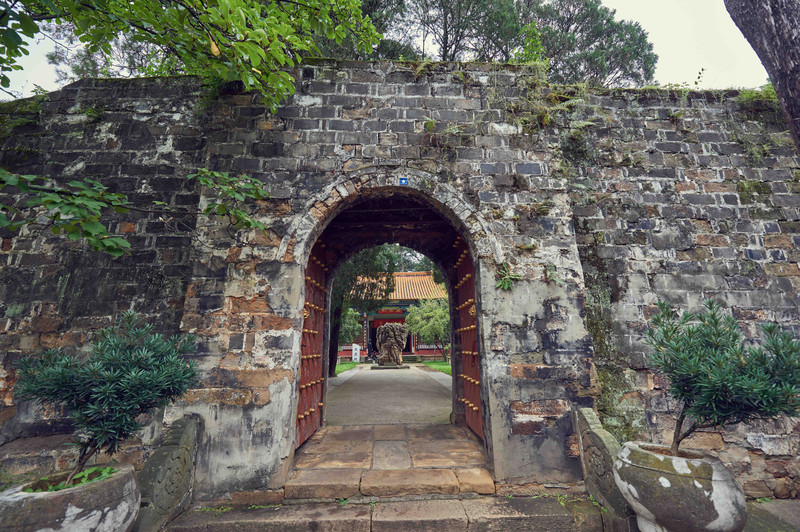
The Taihe Palace in Kunming was built during the Wanli Period of the Ming Dynasty. It was built by the governor of Yunnan to imitate the Taihe Palace in Wudang Mountain.
There is also a "Golden Hall" in Taihe Palace built in the Ming Dynasty, but it was moved to Jizu Mountain in Binchuan, Dali at the end of the Ming Dynasty for various reasons and was destroyed in a special era in the last century.
The current "Golden Hall" was built by "Wu Sangui", King Pingxi in the early Qing Dynasty. It weighs about 250 tons. It is the most complete and largest "Golden Hall" preserved today, and an inscription is engraved on the top of the "Golden Hall."
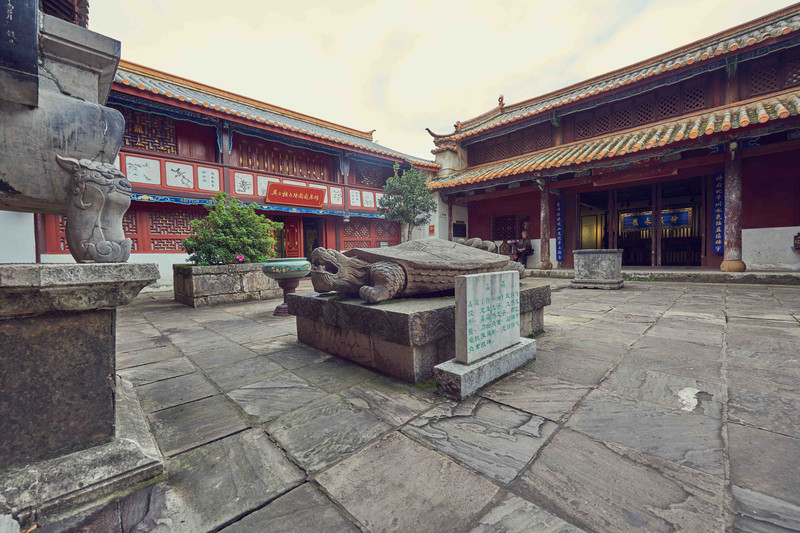
His personal treasures are displayed in an antique building on the left side of the "Golden Hall", which also tells a love story between him and Chen Yuanyuan!
Wu Sangui's life stories are described in detail here, as well as his deeds with the Ming and Qing Dynasties.
After Wu Sangui raised his troops to resist the Qing Dynasty, he also served as emperor for five months, and finally died on the journey due to physical problems!
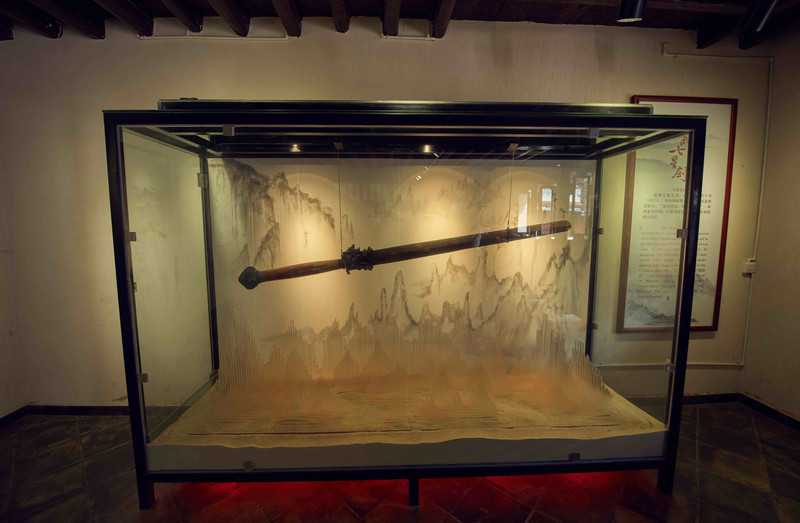
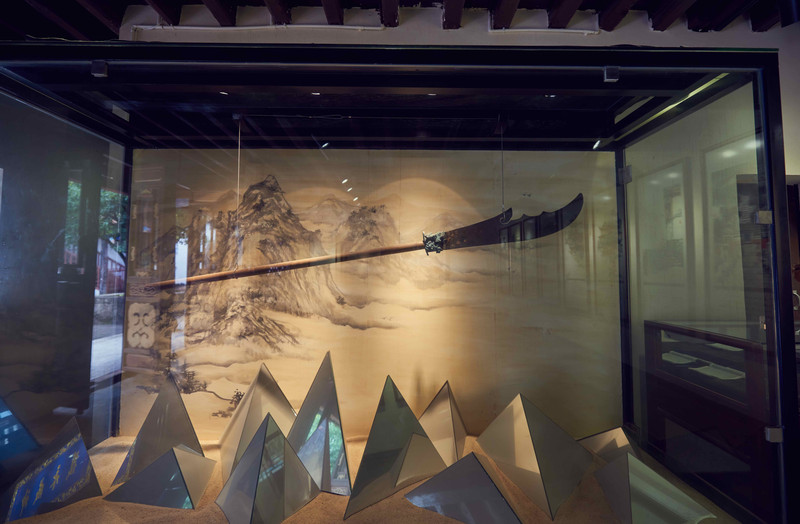
After Wu Sangui built the "Golden Hall, he forged a" Seven Stars Sword ". As the name suggests, there are seven copper stars embedded on both sides of the sword. Its prototype is the Shanshan Sword held by the" True Martial God Lord ". For this reason, he also carved stone tablets.
Wu Sangui also left his wood-handled broadsword in Taihe Palace. This broadsword has followed Wu Sangui in wars for many years. It has killed Qing soldiers and Ming troops. The back of the broadsword is engraved with double dragons. It is very powerful!
These two knives are his most precious personal belongings. They are sealed here like his private museum!
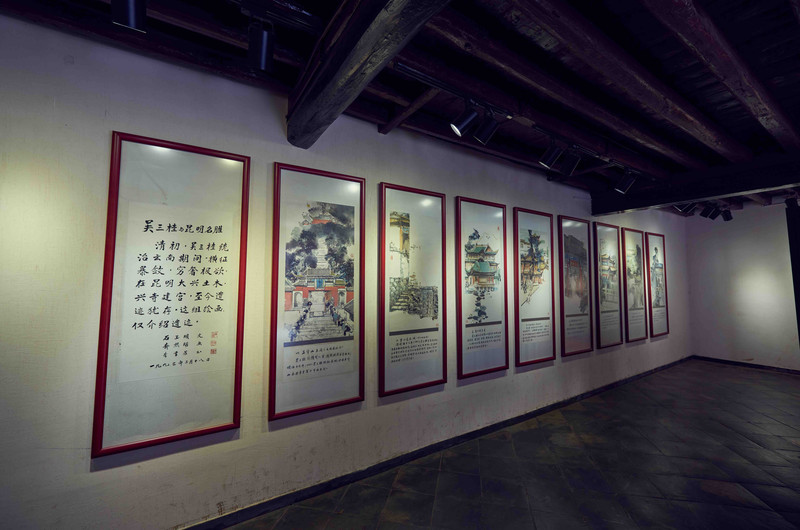
Wu Sangui made great contributions to the local area when guarding Yunnan. He not only built water conservancy projects, but also repaired and expanded local cultural relics.
"Yuantong Temple" Temple is the oldest Buddhist temple in Kunming. In the early Qing Dynasty, Wu Sangui repaired and expanded it."Yuantong Shengjing","Bajiao Tower" and "Shuixie Corridor" were all built during his tenure.
In order to solve the grain transportation problem in Kunming, Wu Sangui opened up the Daguan River near "Jinhuapu" and built a new "grain transportation river".
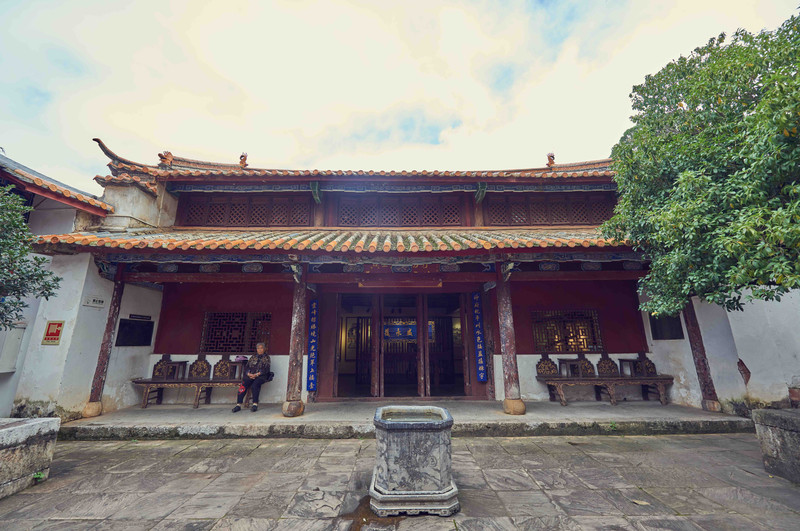
Summary:
Taihe Palace still stands on "Mingfeng Mountain" on the outskirts of Kunming. This ancient building, built in the Ming Dynasty and built in Wu Sangui, witnessed a historical story in the late Ming Dynasty and early Qing Dynasty, recorded Wu Sangui's life story, and a story of "Wu Sangui and Chen Yuanyuan" that has been passed down among the people for hundreds of years!
The manufacture of the "Golden Hall" reflected the ultra-high "copper casting technology" at that time. For this reason, Wu Sangui left his personal treasures sealed here. When he was guarding Yunnan, he made many achievements to the local area, just like ancient historical culture passed down to this day!
Previous Article:Classic attractions in Yunnan, what are the nearby tourist attractions? - Xiaoyun Fun Tour carefully recommended
